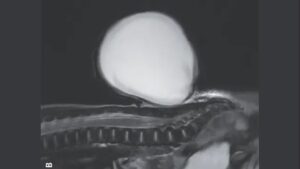Erkekler, bu 8 alışkanlık sperm kalitenize zarar veriyor!
Unveiling the Hidden Culprits: 8 Shocking Factors Harming Male Fertility
It’s a staggering truth: one in every eight couples faces hurdles in conceiving. And here’s the catch: these challenges aren’t just limited to women; men’s reproductive health plays an equally crucial role. Factors like sperm count, motility, and quality in men can significantly impact a couple’s chances of having a child.
According to an eye-opening article published in The Guardian, many men unknowingly adopt habits that could potentially harm their sperm quality. These everyday actions, often done without awareness, can unknowingly jeopardize their fertility.
Backed by healthcare professionals and scientific studies, here’s a list of eight common culprits:
1. Restricting Intimates: The Trouble with Tight Underwear
Choosing constricting underwear can elevate scrotum temperature, negatively influencing sperm production. A study by Harvard University revealed that men wearing boxers have higher sperm concentrations than those opting for briefs.
Research further suggests that heat stress caused by snug clothing can impair sperm quality and increase the risk of infertility.
2. Steaming Up: The Impact of Hot Baths
Prolonged exposure to hot water, like in baths or saunas, can raise testis temperature, affecting sperm health.
Dr. Emin Özbek, a urologist, explains that “saunas and exposure to hot conditions have long been a part of various cultural practices, offering relaxation. However, high temperatures in such environments can temporarily affect sperm production and quality.”
Testicles are positioned outside the body to maintain a temperature slightly cooler than body heat—an ideal environment for sperm production.
3. Battling Infections: The Hidden Danger
Infections, including sexually transmitted infections (STIs) and urinary tract infections (UTIs), can cause inflammation, leading to compromised sperm quality.
The World Health Organization warns that untreated infections like gonorrhea can result in infertility.
4. Varicocele: The Heat Trap
Varicocele, the enlargement of veins in the scrotum, leads to excessive heating and impairs sperm production.
Research indicates that up to 40% of men experiencing fertility issues have varicocele.
While surgical intervention is often considered, some experts advocate its use only in specific subgroups of men with infertility issues, as explained in the study “Male Infertility and Varicocela: Myths and Reality.” Nevertheless, it remains a leading contributor to male infertility.
5. Lap-Bound Laptops: A Heat Hazard
Positioning a laptop on your lap for extended periods generates heat, raising scrotal temperature and potentially harming sperm.
A study titled “Scrotal Temperature in Laptop Computer Users” found that heat from laptops increases the risk of scrotal hyperthermia, negatively influencing sperm production. Opting for a desk and utilizing cooling pads can minimize this risk.
6. Substance Abuse: The Silent Sperm Deterrent
Drugs can significantly diminish sperm count and quality. The National Institutes of Health (NIH) found that these substances reduce sperm motility in men.
Moreover, they can lower testosterone levels, influencing fertility. A fertility clinic’s findings have shown a link between tobacco use, specifically, and reduced sperm counts, semen volume, and sperm motility.
7. Phone Positioning: The Pocket Problem
Keeping cell phones in your pocket, close to your testicles, exposes them to radiofrequency electromagnetic waves, potentially harming sperm.
Research published in “Environmental International” identified a correlation between cell phone radiation and reduced sperm viability. The study demonstrated that both animal and human sperm exposed to cell phone radiation exhibited decreased motility, structural abnormalities, and increased oxidative stress.
8. Smoking: The Lung and Sperm Damage Connection
Smoking doesn’t just harm the lungs; it also affects sperm. The study “The Damaging Effects of Tobacco Smoking on Male Fertility” revealed that smoking diminishes semen quality, impairing sperm concentration, motility, vitality, and morphology. It also disrupts the reproductive hormone system and sperm maturation.











